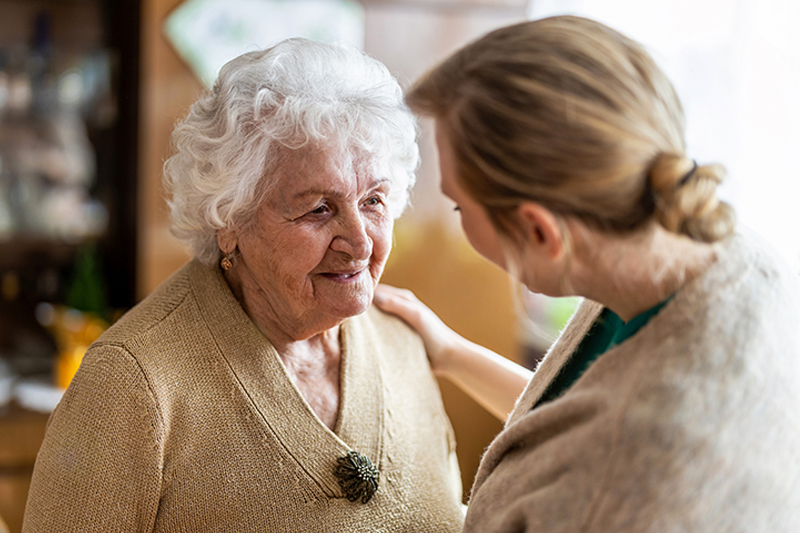
If a senior loved one needs chronic pain management, a trusted home care agency can help.
Aching. Stinging. Burning. That is how many seniors managing chronic pain describe how they feel on a daily basis. Chronic pain may appear anywhere in the body, sometimes for no apparent reason whatsoever. It is defined as pain that persists for more than three months, either continuous or coming and going. And it is more common than you may think, affecting one in four people in the US.
Needless to say, chronic pain management can have a huge influence on a senior’s overall wellbeing. Not only does it affect the ability to complete daily physical duties and activities, but it leads to psychological pressure too, often resulting in anxiety, fatigue, moodiness, depression, insomnia, and more.
Chronic Pain Management Treatments
Quite a few elements go into the decision of how to best support a senior with chronic pain, including the suspected or established source of the pain, how serious the pain is, where in the body it occurs, and age/overall health. There are several medication-based treatments to ease pain, including treatment for any psychological effects being experienced.
In addition, the doctor may want to try transcutaneous electrical nerve stimulation, epidural steroid injection, or a nerve block, which involves small electric impulses delivered via skin patches.
There may be uncomfortable side effects from these types of treatments, and a few are quite serious, so the doctor will need to carefully examine what works best for the senior.
Lifestyle Changes for Chronic Pain Management
Changes in lifestyle for seniors tend to be a great place to start, because they can be implemented right away with no negative impacts. Some suggestions include:
- A change in diet. Particular foods can cause inflammation, which could worsen pain. An anti-inflammatory diet that eliminates refined carbs and red meat may be suggested by the doctor or a nutritionist.
- Stress reduction. Elevated stress levels can have a significant effect on chronic pain. There are an array of strategies to reduce stress that can help, including yoga, deep breathing, meditation or prayer, taking a warm, relaxing bath, reading, or listening to calming music.
- Exercise. Though it may seem hard to think about exercising while in pain, low-intensity workouts are actually worthwhile, and can also help with alleviating stress. Ask the doctor for specific tips.
- Rest. Sufficient sleep is key to general health and wellness. There’s also a link between sleep deficiency and weight gain, something that can further aggravate chronic pain. Let the physician know if insomnia is a problem so that they can provide guidance on safe ways to improve sleep habits.
Home Care Can Help!
Allow the home care team at Absolute Companion Care, an award-winning provider of home care services in Towson, MD and the surrounding areas, to help a senior you love better navigate life with chronic pain. There are a variety of ways our care providers can enhance quality of life, including:
- Companionship – having someone to talk to and engage in enjoyable activities with is a fantastic mood-booster
- Motivation to take part in recommended exercise programs
- Healthy meals
- Assistance with housework and laundry
- Medication reminders
- Transportation to medical appointments and anywhere else a senior would like to go
- Plus much more
Contact us any time at 410-357-9640 and let us know about the challenges you are experiencing so that we can offer a solution to overcome them.
